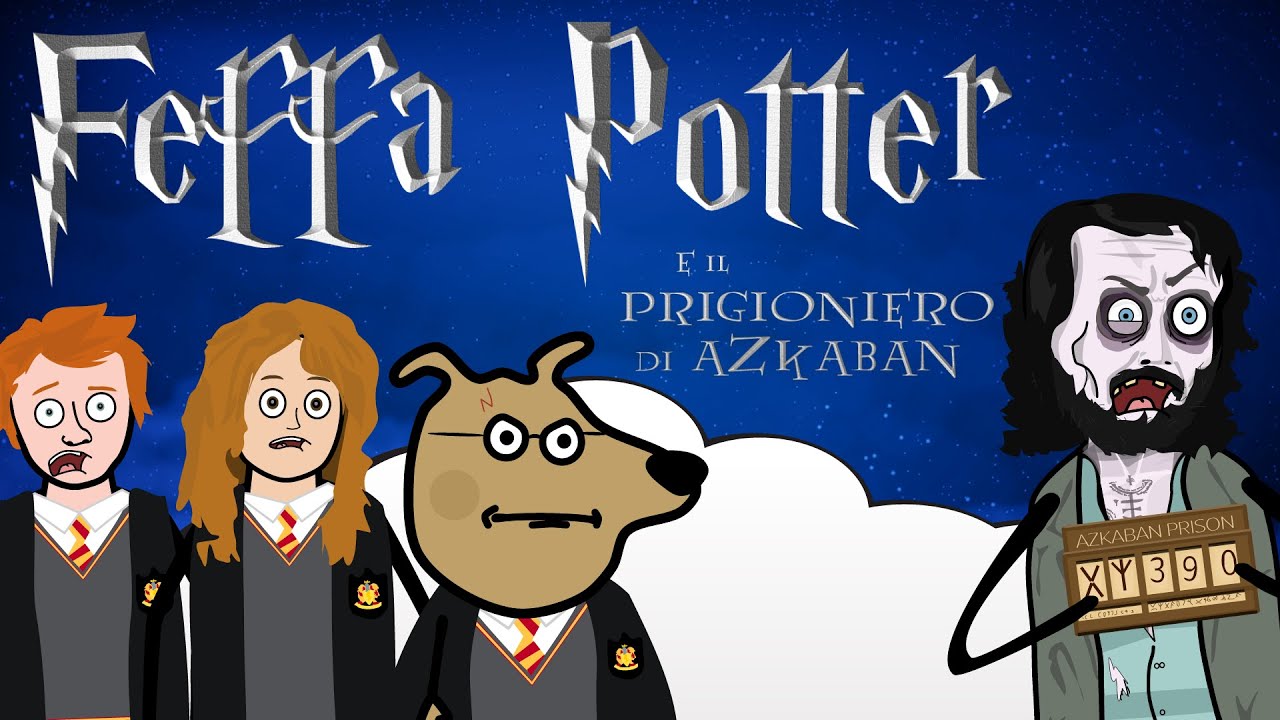Как «Гарри Поттер» изменил английский
Summary
TLDRThe video script discusses the impact of the Harry Potter series on the English language, highlighting how certain words from the magical universe have made their way into dictionaries. It explores correct and incorrect translations of characters' names and terms, such as 'Muggle' and 'Quidditch,' and how they've been adapted in different versions of the books. The script also touches on the challenges of translating the series into other languages, providing examples of names and phrases that have been altered or lost in translation. Additionally, it offers insights into the creative choices made by translators and the importance of preserving the original meanings and wordplay.
Takeaways
- 📚 The script discusses the impact of the Harry Potter series on the English language, including the inclusion of words from the magical universe in dictionaries.
- 🔮 The word 'muggle' was added to the Oxford dictionary before the Harry Potter series, originally referring to a type of marijuana.
- 🏉 The sport of Quidditch from the series has influenced the real world, with the Oxford dictionary including the word.
- 📖 There are differences in translations between the British and American versions of Harry Potter books, such as 'philosopher's stone' versus 'sorcerer's stone'.
- 🎓 The 'Sorting Hat' is referred to as a 'level test' in both English versions, indicating one's proficiency in English rather than a magical destiny.
- 📝 The script mentions the importance of accurate translations, highlighting examples where certain words or names have been translated differently or incorrectly.
- 🌟 The word 'Apparition' is used in both the magical world and in religious contexts, referring to the transformation of one object into another.
- 🐉 The script explores the etymology of names and words in the series, such as 'Hufflepuff' and 'Slytherin', and how they relate to their meanings or historical origins.
- 🌐 The script criticizes some translations, suggesting that they lose the original meaning or cultural references, like translating magical creatures as 'beasts'.
- 🎁 The script ends with a promotional code for a language course, suggesting that learning English can be as magical as the Harry Potter universe.
Q & A
What is the main topic of the video script?
-The main topic of the video script is the influence of the Harry Potter series on the English language, including the incorporation of magical terms into dictionaries, translations of character names, and the impact on the language.
Why does the speaker mention that showing any part of the Harry Potter world is a copyright violation?
-The speaker mentions copyright violation to emphasize the legal restrictions around using content from the Harry Potter series, such as film clips, book excerpts, or drawings, without permission from the copyright holders.
Which word from the Harry Potter series was added to the Oxford dictionary even before the series gained massive popularity?
-The word 'muggle' was added to the Oxford dictionary before the Harry Potter series became widely popular, although it had a different meaning related to slang for marijuana.
What sport is mentioned in the script that became popular due to the Harry Potter series?
-Quidditch is the sport mentioned that gained popularity due to the Harry Potter series, and it even became a real sport outside of the books.
Why did the American version of the Harry Potter books change certain words from the British version?
-The American version of the Harry Potter books changed certain words to make them more relatable to American readers, such as changing 'philosopher's stone' to 'sorcerer's stone' and using 'mom' instead of 'mum'.
What is the significance of the 'Sorting Hat' test mentioned in the script?
-The 'Sorting Hat' test is a metaphor for a language proficiency test that assesses one's English level based on grammar, listening, reading, and does not arbitrarily assign a person to a category like the magical Sorting Hat in the Harry Potter series.
What does the speaker suggest for those interested in improving their English skills?
-The speaker suggests signing up for a free lesson on the Skyeng platform, which offers interactive English language courses with a magical twist inspired by the Harry Potter series.
Why does the speaker discuss the translation of character names in the Harry Potter series?
-The speaker discusses the translation of character names to highlight the challenges and choices translators face in conveying the original meanings and cultural references while also making names accessible to readers in different languages.
What is the issue the speaker has with the translation of the character 'Snape' in the Russian version of the Harry Potter series?
-The speaker is puzzled by the insistence on translating Snape's name and surname in the Russian version, as there are no strong English roots in the word, and they question the selectiveness of the translators for not applying a similar approach to other names.
What is the speaker's opinion on the translation of magical creatures as 'tvar' in the Russian version?
-The speaker believes that translating magical creatures as 'tvar' in the Russian version is incorrect, as 'tvar' does not accurately represent the nature of magical creatures in the Harry Potter series.
Why does the speaker mention the word 'Mimbulus mimbletonia' and its translation?
-The speaker mentions 'Mimbulus mimbletonia' to illustrate how translators had to be creative with the translation of magical plant names, which were invented for the series and have no direct real-world counterparts.
Outlines

このセクションは有料ユーザー限定です。 アクセスするには、アップグレードをお願いします。
今すぐアップグレードMindmap

このセクションは有料ユーザー限定です。 アクセスするには、アップグレードをお願いします。
今すぐアップグレードKeywords

このセクションは有料ユーザー限定です。 アクセスするには、アップグレードをお願いします。
今すぐアップグレードHighlights

このセクションは有料ユーザー限定です。 アクセスするには、アップグレードをお願いします。
今すぐアップグレードTranscripts

このセクションは有料ユーザー限定です。 アクセスするには、アップグレードをお願いします。
今すぐアップグレード関連動画をさらに表示

FEFFA POTTER e il Prigioniero di Azkaban [FILM COMPLETO]

A conversation about English with SHASHI THAROOR. [2020]

A Deep Dive into Potterheads

The Life of JK Rowling Explained (Origins of the Harry Potter Series)

Neue Harry Potter Serien, Jurassic World 4, Mufasa: Der König der Löwen... KinoCheck News

CAN and CAN'T: the importance of Weak Forms
5.0 / 5 (0 votes)
